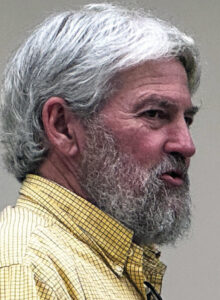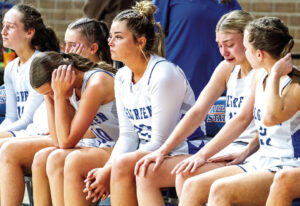College Board needs reorganization now
By Staff
July 29, 2001
Last week's dismissal and let's call it what it is of University of Southern Mississippi President Dr. Horace Fleming has left deep divisions within the Golden Eagle family that may take years to heal completely, if at all.
The unwillingness of Fleming's opponents to make their specific concerns known publicly and the College Board's overall handling of the situation left a bitter taste among many USM supporters. That battle is now over, and it's time for everyone who cares about higher education in South Mississippi to come together. There is a bigger battle still to be fought that will have a much larger effect on The University for the New South for decades to come.
The Board of Trustees for the Institutions of Higher Learning must be reorganized now.
The College Board, as it is better known, was organized in 1944 after accreditation for Mississippi's colleges was suspended, the result of former Gov. Theodore Bilbo's attempt at purging political opponents from the university system. At the time the state had seven congressional districts, and Mississippi's population was centered north of U.S. Highway 80 (now parallel I-20).
Original law
The law that created the IHL Board mandated one member from each of the then seven congressional districts, one member from each of the state's three Supreme Court districts, and two at-large members. Through 57 years, five subsequent redistrictings, the loss of one Congressional seat and the loss of another with the next redistricting later this year, and the change of population trends which now sees nearly two-thirds of all Mississippians living south of Interstate 20, the original 1944 law is still used for the Governor to appoint College Board members.
There have been attempts to update the IHL Board appointment method in recent years. During the last legislative session, Rep. Herb Frierson, D-Poplarville, sponsored an amendment to the state constitution that would do this, but it was apparently kept off the floor by House Speaker Tim Ford, D-Baldwyn, and House Constitution Committee Chairman Johnny Stringer, D-Montrose. These are North Mississippi legislative leaders who obviously have a vested interest in keeping the status quo intact.
Frierson has said he would bring the matter up again in the next session.
While Rep. Frierson's basic plan is excellent, I believe that I can improve on it and actually make the selection process fairer for all Mississippians. This is my proposition:
Three members selected from each of the state's four Congressional Districts.
Reduce the terms from 12 years to six, still staggered.
Mandate that no more than two members shall have earned their undergraduate degrees from any one university.
This would result in several advantages:
That perception will probably never be completely eliminated, but in time, and with the right people nominated, could be reduced.
A better opportunity for the Governor to appoint members with ties to state universities who have traditionally had little, if any, representation previously on the IHL. This is especially true in the case of
USM, the second largest state-supported university,
but currently does not have a member who earned his/her undergraduate degree there and only one member with a graduate degree from the Hattiesburg school.
This would also benefit the state's traditionally black universities, especially in the wake of the Ayers decision, which will continue to be watched very closely in the African-American community.
Greater diversity on the Board. By forcing the Governor to consider appointing members with ties to universities beyond the "Big Three" using this mandate, this again would be a benefit to African-Americans by offering the possibility of more members on the Board, making it more representative of the state as a whole.
It's time for Old South, "good ol boy" politics to end. Mississippi must begin to look forward, not rely on a century old constitution to base its laws on and a 60 year old census to appoint College Board members.
In the words of Dr. Fleming, "OUR TIME IS NOW!"








